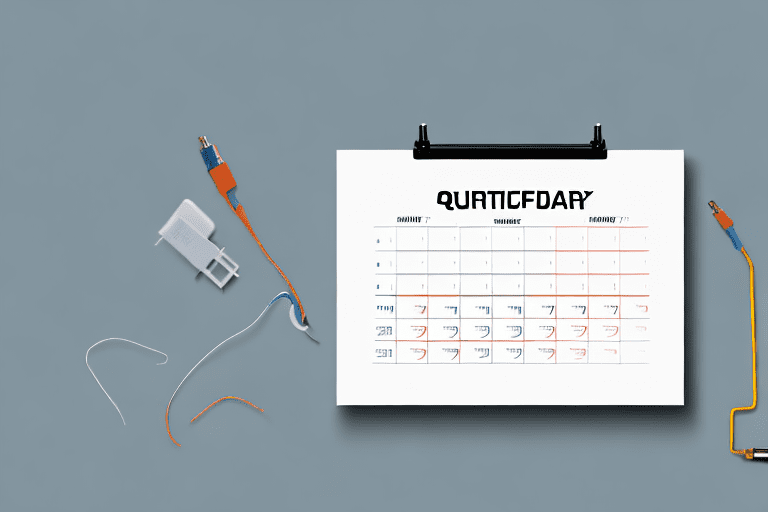The Part P qualification is an important certification that individuals working in the electrical field need to possess. It is essential for ensuring safety and compliance with building regulations when carrying out electrical installations in dwellings. However, like any other qualification, it is important to understand how long the Part P qualification lasts to ensure ongoing compliance and professionalism.
Understanding the Part P Qualification
The Part P qualification is a certification that verifies an individual’s competence in electrical work for domestic installations. It is a requirement set forth by the UK government as a measure to maintain safety standards in residential properties. This qualification is an essential prerequisite for electrical professionals, such as electricians and electrical contractors, who undertake electrical installations in dwellings. It covers a range of tasks, including designing, installing, testing, inspecting, and certifying electrical work.
When it comes to electrical work in residential properties, safety is of utmost importance. The Part P qualification plays a crucial role in ensuring that electricians have the necessary skills and knowledge to carry out their work safely and effectively. It is based on the Building Regulations Approved Document P, which provides guidelines and regulations for electrical installations in dwellings.
What is the Part P Qualification?
The Part P qualification is based on the Building Regulations Approved Document P. It is designed to ensure that electrical installations within residential properties meet the required safety standards. The qualification is awarded by various recognized certification bodies and includes both theoretical knowledge and practical skills assessments.
To obtain the Part P qualification, electricians must undergo rigorous training and assessment. They are required to demonstrate their understanding of electrical principles, regulations, and best practices. Additionally, they must showcase their practical skills by successfully completing tasks related to designing, installing, testing, inspecting, and certifying electrical work in domestic settings.
The Part P qualification is not a one-time certification. It is important for electricians to stay up-to-date with the latest regulations and industry standards. Therefore, they are often required to undergo regular training and assessments to maintain their Part P qualification.
Importance of Part P Qualification in Electrical Work
The Part P qualification holds significant importance in the field of electrical work, particularly in residential settings. It ensures that electricians have the necessary knowledge and skills to safely carry out electrical installations, minimizing the risk of accidents or incidents. By holding a valid Part P qualification, electricians can instill confidence in their clients and demonstrate their commitment to high-quality workmanship.
Moreover, the Part P qualification helps maintain consistency and compliance across the industry. It sets a standard for electrical installations in residential properties, promoting safety and professionalism. By adhering to the regulations and guidelines outlined in the Part P qualification, electricians contribute to the overall safety and well-being of homeowners.
Furthermore, the Part P qualification is not only beneficial for electricians but also for homeowners. When hiring an electrician with a valid Part P qualification, homeowners can have peace of mind knowing that their electrical installations are being handled by a competent professional. This qualification serves as an assurance of quality and safety.
In conclusion, the Part P qualification is an essential certification for electricians and electrical contractors working in residential properties. It ensures that they have the necessary skills and knowledge to carry out electrical installations safely and effectively. By upholding the standards set forth in the Part P qualification, electricians contribute to the overall safety and professionalism of the industry.
Duration of Part P Qualification
Initial Validity Period of Part P Qualification
Upon successful completion of the Part P qualification, individuals are awarded a certificate that is valid for a certain period of time. The initial validity period for the Part P qualification varies depending on the certification body and the specific qualification obtained. Typically, it can range from three to five years. It is important to check the validity period mentioned on the certificate to be aware of when it expires.
During the initial validity period, individuals are recognized as competent and qualified to carry out electrical work in accordance with Part P of the Building Regulations. This means that they have demonstrated their knowledge and skills in electrical installation and are able to ensure compliance with safety standards.
Throughout the validity period, individuals may be required to undergo periodic assessments or refresher courses to maintain their qualification. This helps to ensure that they stay up to date with any changes in regulations and industry standards.
Factors Influencing the Duration of Part P Qualification
The duration of the Part P qualification can be influenced by various factors. These factors may include changes in electrical regulations and industry standards, advancements in electrical technology, and the need for professionals to keep their knowledge up to date.
Electrical regulations and industry standards are constantly evolving to address new safety concerns and technological advancements. As a result, professionals with a Part P qualification may be required to update their knowledge and skills to stay compliant with the latest regulations. This could involve attending training courses or completing additional assessments.
Advancements in electrical technology can also impact the duration of the Part P qualification. As new technologies emerge, professionals may need to acquire additional knowledge and skills to work with these advancements safely and effectively.
Furthermore, ongoing professional development and continued education can also impact the duration of the qualification. Many certification bodies require individuals to undertake a certain number of hours of continuing professional development (CPD) each year to maintain their qualification. This ensures that professionals stay up to date with the latest industry practices and knowledge.
Overall, the duration of the Part P qualification is not fixed and can vary depending on various factors. It is important for individuals to stay informed about any changes in regulations, industry standards, and advancements in technology to ensure that they maintain their competence and qualification in electrical installation.
Renewal and Expiration of Part P Qualification
The Part P qualification is an important certification for electricians, as it ensures their competence and compliance with electrical regulations. However, like any other qualification, the Part P qualification has an expiration date. As the validity period of the Part P qualification approaches its expiration, there are specific signs to be mindful of.
Signs Your Part P Qualification is Nearing Expiration
One of the common signs that your Part P qualification is nearing expiration is receiving reminders from the certification body. These reminders serve as a gentle nudge to electricians, reminding them to take action and renew their qualification on time. It is crucial to pay attention to these reminders and not let the expiration date pass unnoticed.
Another sign that your Part P qualification is nearing expiration is updates to regulations. Electrical regulations are constantly evolving, and staying up to date with the latest changes is essential for electricians. When you notice significant updates to regulations related to Part P qualification, it is a clear indication that your qualification might need to be renewed soon.
Furthermore, requests for the latest certificates from clients or employers can also be a sign that your Part P qualification is nearing expiration. Clients and employers often require up-to-date certifications to ensure that the electricians they hire are qualified and competent to perform electrical work. If you start receiving requests for updated certificates, it is a strong indication that your qualification needs to be renewed.
Steps to Renew Your Part P Qualification
Renewing the Part P qualification is essential to maintain professional competence and legality while working in the electrical field. The renewal process typically involves demonstrating ongoing professional development and continuing education in electrical work.
One of the most common ways to achieve this is by attending training courses, workshops, seminars, or conferences. These educational activities provide electricians with valuable knowledge and updates in the field of electrical work. By participating in such events, electricians can enhance their skills, stay up to date with the latest industry practices, and fulfill the requirements for Part P qualification renewal.
It is important for electricians to keep a record of these professional development activities. This record should include details such as the name of the event, the date attended, and the number of hours completed. Additionally, electricians should obtain the necessary certificates or proof of attendance to support their renewal application.
Renewing the Part P qualification is not only a legal requirement but also a way to ensure that electricians continue to provide safe and reliable electrical services to their clients. By staying proactive and taking the necessary steps to renew their qualification, electricians can maintain their professional standing and contribute to the overall safety of electrical installations.
Impact of Lapsed Part P Qualification
Consequences of Working Without a Valid Part P Qualification
Working without a valid Part P qualification can have severe consequences for electricians and electrical contractors. It is against the law and can result in fines, imprisonment, or both. Additionally, the lack of a valid Part P qualification can render electrical work certificates invalid, potentially leading to further legal implications for the electrician and dissatisfaction for the client.
Repercussions on Professional Reputation and Opportunities
Allowing the Part P qualification to lapse can negatively impact an electrician’s professional reputation and opportunities. It can raise questions about their competency, professionalism, and commitment to safety. Clients may be hesitant to hire an electrician without a valid qualification, potentially leading to a loss of business and reputation. It can also limit career progression and hinder opportunities for working on larger projects or with reputable companies that prioritize compliance with regulations.
Keeping Up with Changes in Part P Qualification
Updates in Part P Qualification Standards
The Part P qualification standards are subject to updates and changes over time to align with advancements in electrical safety practices and regulations. It is crucial for electricians to stay informed about these changes to ensure ongoing compliance and professionalism. Certification bodies and industry organizations typically communicate updates through newsletters, websites, and training events.
Staying Informed About Part P Qualification Changes
Educational resources, such as industry publications, electrical forums, and online forums, are excellent sources of information for staying up to date with Part P qualification changes. Regularly checking the websites of certification bodies and subscribing to their newsletters can also help electricians stay informed about any amendments or additions to the qualification requirements. Being proactive in staying updated contributes to maintaining professional knowledge and competence.
By understanding the duration, renewal process, and importance of the Part P qualification, electricians can ensure ongoing compliance with regulations and provide safe electrical installations in dwellings. Keeping up to date with changes in the qualification standards demonstrates professionalism and a commitment to maintaining the highest standards of electrical work. Overall, the Part P qualification serves as a valuable asset for individuals working in the electrical field, promoting safety, competence, and trust in the industry.











